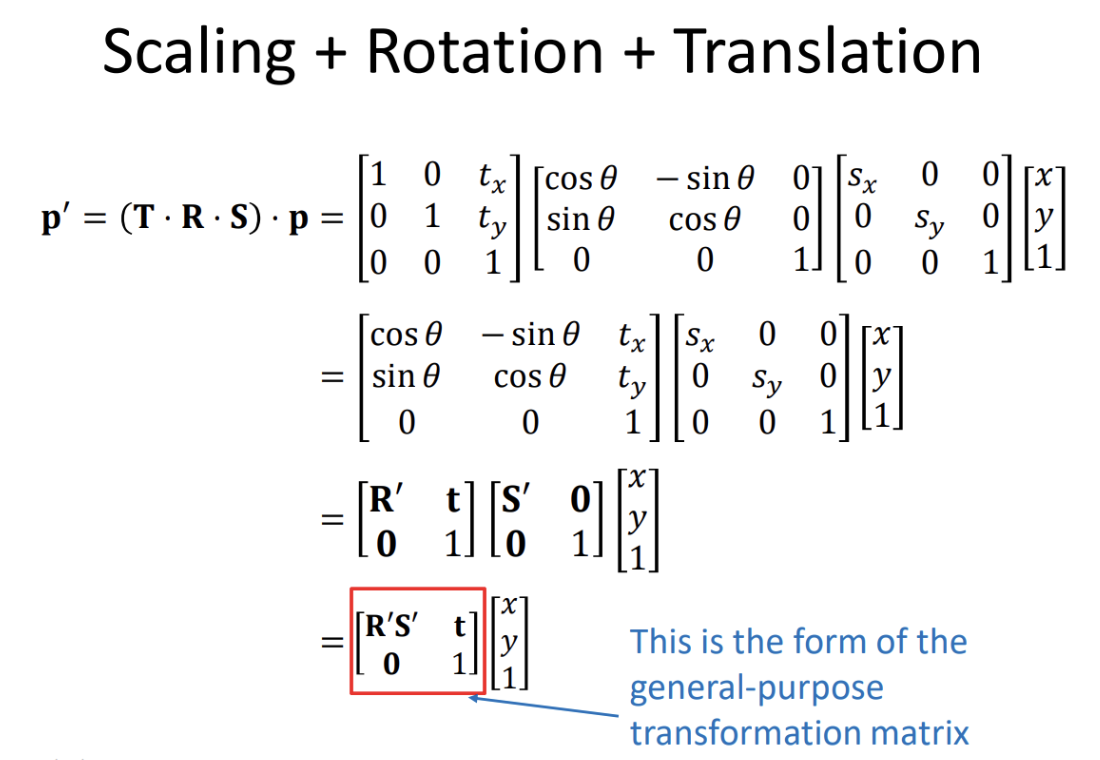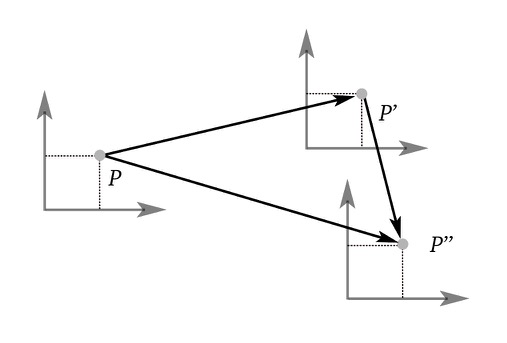Given a square matrix :
- An eigenvector is a non-zero vector whose direction doesn’t change when multiplied by . Note that if has an eigenvector, then there are an infinite number of eigenvectors (vectors parallel to ).
- An eigenvalue is the scale factor associated with an eigenvector of after multiplication by .
Assuming that has at least one eigenvector , we can perform standard matrix multiplications to find it. First, let’s manipulate the right side of so that it also features a matrix multiplication.
Where is the identity matrix, next we can rewrite the last equation as
Because matrix multiplication is distributive
The quantity must not be invertible. If it had an inverse, we could premultiply both sides by , which would yield
The vector fulfills . However, we’ll try to find a vector . If such a condition is added, then the matrix must not have an inverse, which also means that its determinant is 0.
If is a matrix, then
From , we can find two values for , which may be unique or imaginary. A similar manipulation for an matrix will yield an th degree polynomial. For , we can compute the solutions by analytical methods; for , only numeric methods are used.
The associated eigenvector can be found by solving
Applications
List of applications
- If is a transformation matrix, then is a vector that isn’t affected by the rotation part of . Therefore, is the rotation axis of .




